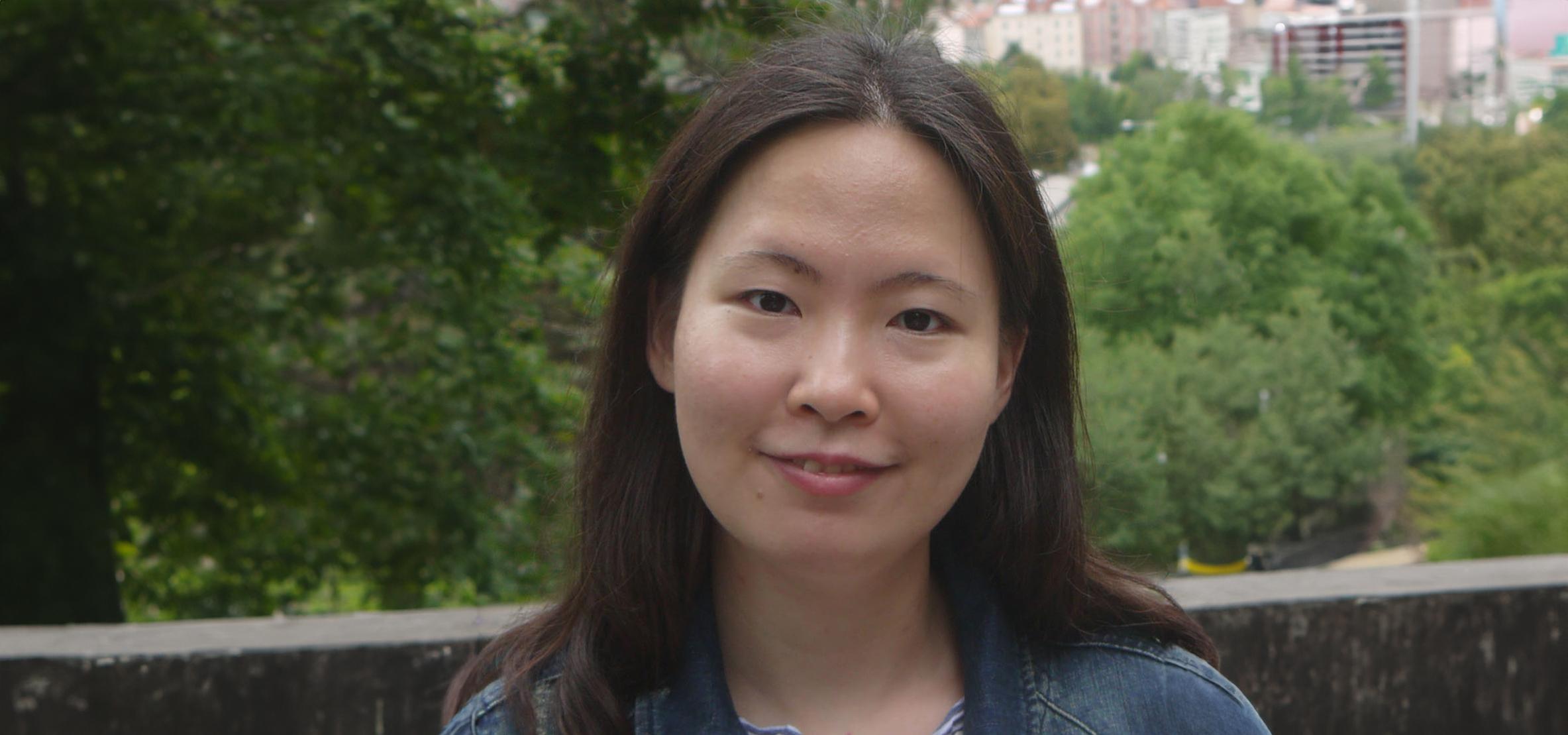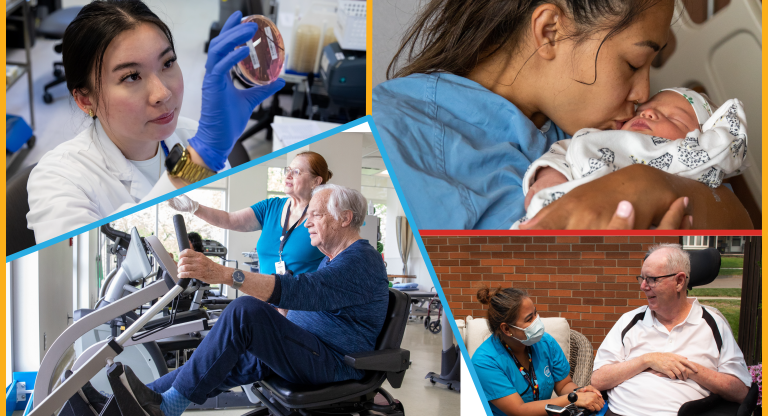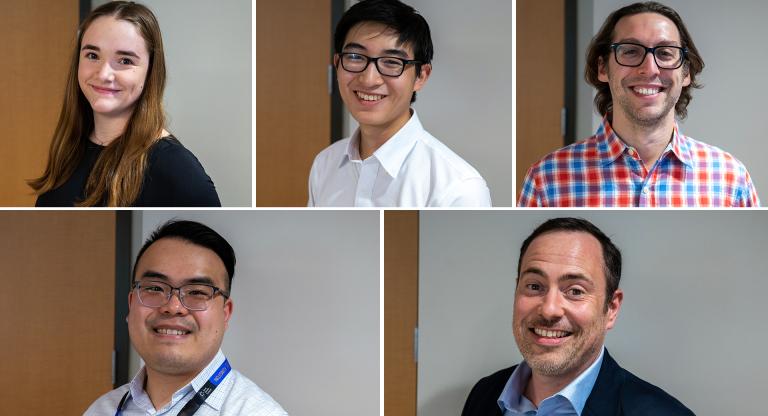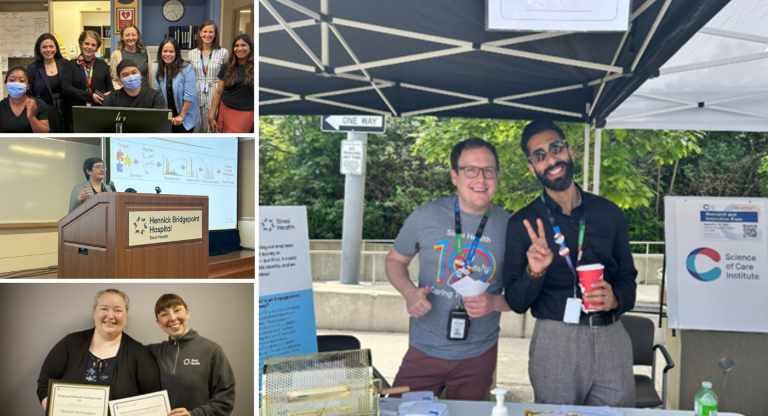Sinai Health's Dr. Yeojin Lee garners inaugural REDI Award for diverse research leadership

Postdoctoral fellow Dr. Yeojin Lee now has less to worry about career prospects – as a winner of the REDI Award, she’s already on a path to having her own laboratory.
Dr. Lee is among the recipients of the inaugural CIHR Research Excellence, Diversity, and Independence (REDI) Early Career Transition Award, that supports postdoctoral researchers looking to secure faculty positions.
Established by the federal government, the REDI Award aims to increase diversity in research leadership, which has been shown to benefit innovation and productivity, according to the Canadian Institutes of Health Research.
Dr. Lee is currently working with her mentor, Dr. Daniel Schramek, Senior Investigator at the Lunenfeld-Tanenbaum Research Institute, part of Sinai Health, on investigating how pathogens influence cancer.
“I am fortunate to have someone like Yeojin in the lab,” said Dr. Schramek, who is also an associate professor of molecular genetics at the University of Toronto’s Temerty Faculty of Medicine. “She hit the ground running with a demanding project and we are very excited about the data that it will provide. She has everything it takes to become an independent investigator and I will do all in my power to support her reach her goals.”
While the trainee pool in Canada is diverse, the transition from trainee to faculty member is a major attrition point, especially for racialised women and other individuals from underrepresented groups. The REDI Award program seeks to redress this by supporting exceptional postdoctoral researchers from these groups during their postdoctoral training and transition into a faculty position at a Canadian institution. This is also good news for future minority trainees who will have more role models that look like them.
For Dr. Lee, the REDI award means that in addition to receiving three years of funding for her postdoctoral research, she will also have funds for another three years to help her set up her own lab.
The REDI award gives me a peace of mind that I will be more competitive on the job market. The funding is the first of its kind and I hope to pay it forward by encouraging people of minority, including racialized women like me, to pursue their passion for research,
It’s a good thing that Dr. Lee can focus on her current research because it has an ambitious goal. She is working in a largely unexplored field of microbial oncogenesis, which involves study of how viral and bacterial genes impact cancer origin and progression. Specifically, she will investigate the microbial genes’ effect on epithelial cancers that are difficult to treat, such as lung, skin, head & neck, and colon cancer.
“To the best of our knowledge, this is the first systematic approach to elucidate the contribution of microbial genes to cancer. We know that microorganisms play a pivotal role in many cancers and especially in epithelia that constitute the natural barrier for invading microorganisms, but nobody has investigated this in an unbiased way,” said Dr. Lee, who joined Dr. Schramek’s lab after completing her Ph.D. at Columbia University in New York, where she investigated stem cell biology.
One-fifth of all cancers are influenced by infections, according to the World Health Organization. Meanwhile, the International Association of Cancer Registries has designated 11 pathogens as cancer-causing, but this is likely an underestimate and the number of the so-called “oncomicrobes” will grow as more research is done, said Dr. Lee.
Dr. Lee sought out the Schramek lab for their unique approach to studying the function of many genes in parallel in animals using the gene-editing tool CRISPR, which gained them global renown. It allowed them to investigate the effects of genes on individual cells and their surroundings in an intact animal, or in vivo, which is biologically more relevant than investigating cells grown in a plastic dish, or in vitro, as is mostly done.
“Dr. Schramek is such a brilliant scientist; he has so many great ideas,” said Dr. Lee. “His genuine interest in science also gets you excited. Most of all he is very supportive of his trainees.”
Now, Dr. Lee will use the lab’s powerful technology to introduce a collection of more than 5,000 genes from more than 200 pathogens into mice and delineate their role in tumorigenesis.
A gene from a pathogen can directly promote cancer by driving excess cell proliferation, or it can dampen the immune system so that it fails to clear the already existing cancer cells from the body. Some pathogen genes may also suppress cancer. Altogether, Dr. Lee expects the project to generate a wealth of information about which microbes are oncogenic as well as molecular insights into their gene function that can be harnessed for developing novel treatments.
After completing her postdoctoral project and securing a faculty position, Dr. Lee will launch her own research program, where she plans to combine expertise gained through postgraduate training to investigate the blood stem cells, while continuing to expand her interest in human cancers. “I wholeheartedly congratulate Yeojin on this well-deserved award and look forward to following her scientific journey at the LTRI and beyond as she creates her own research program; I also commend the Canadian Institutes of Health Research for their strategy to increase diversity in research leadership,” said Dr. Anne-Claude Gingras, Director of the LTRI and Vice-President of Research at Sinai Health.












